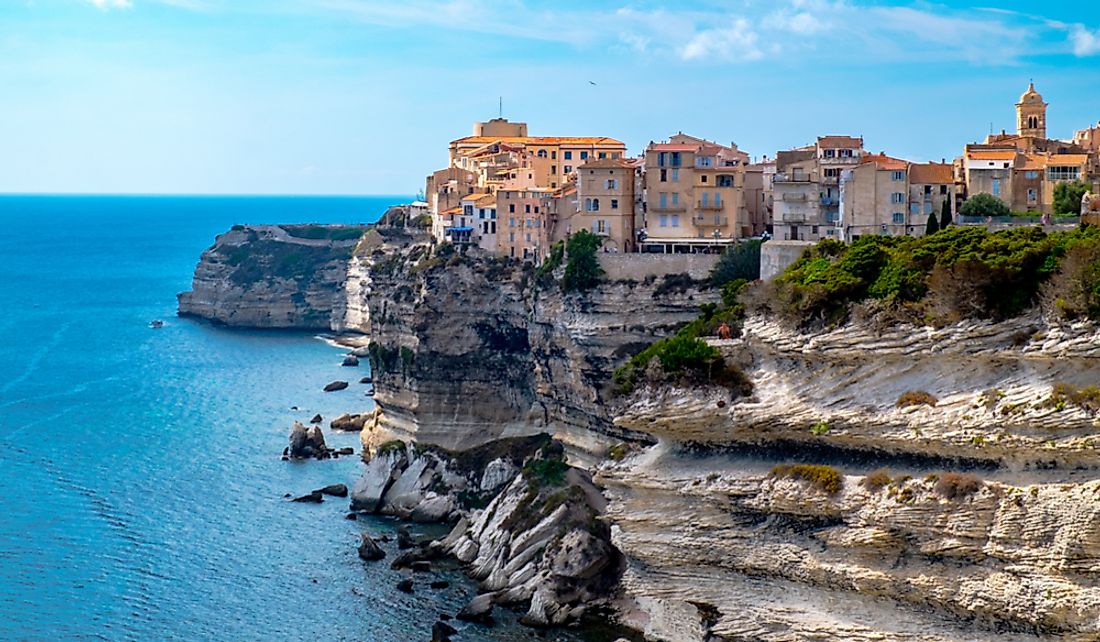Which Country Does Corsica Belong To?

Corsica is a Mediterranean island that is an administrative region of France. The island is ranked among the largest islands in the Mediterranean Sea, along with Cyprus, Sicily, and Sardinia. Corsica is one of France's 18 administrative regions, but is also considered a territorial collectively, and has been granted more autonomy than other French regions.
History
The island has been occupied by various groups of people throughout history, including the Carthaginians, Romans, Greeks, the Vandals, and the Orthogs. This history has included violent invasions and takeovers of the island and its resources. During the 17th and 18th centuries, control of the island changed from Genoa to France, with a brief occupation by the British in 1794. Corsica was briefly occupied by Britain again in the 19th century, during the Napoleonic Wars, but France eventually regained control of the island. Corsica became occupied during the Second World War but became a freed French territory in 1943.
Geography And Climate
Corsica is located in the Mediterranean Sea, just 117 km from Cote d’Azur, France, and 90 km from Tuscany, Italy. The island is 183 km long, 83 km wide, and is surrounded by 1,000 km of coastline. Corsica contains a single chain of mountains, and the highest peak is Monte Cinto, which has an elevation of 2,706 meters, while other peaks have an average height of 2,000 meters. Low elevation areas of the island experience a Mediterranean climate in which summers are hot and dry, and winter has moderate rainfall. High elevation areas experience a cool and wet climate.
Population And Culture
With a population of about 322,120, Corsica is among the most populated islands in the Mediterranean region. The biggest towns on the island are the capital Ajaccio, Bastia, Corte, and Sartene. More than half of Corsica's population was born on the island, while the remainder includes immigrants from countries such as Morocco, Italy, and other southern Mediterranean nations. French is the official language, but Corsican is also spoken. Corsica has a rich culture and food is a significant part of that, as its cuisine is considered among the best in Europe and includes dishes prepared from local ingredients. Wine is produced in Corsica.
Governance
The French government has granted considerable autonomy to Corsica but still has executive powers. Additionally, the French government designated Corsica as a territorial collectivity in 1982, and the following three political institutions were created in 1993: the Assembly of Corsica, a legislative body that has more powers than other French administrative regions and is comprised of elected members; the Executive Council of Corsica, which holds executive functions; and the Economic, Social and Cultural Council of Corsica, an advisory board. Calls for full independence were accompanied by terrorist acts, which forced the French government to grant the island increased autonomy in 2000 in a bid to stop the violence.
Calls For Independence
Despite various calls for independence from France, polls show Corsicans are opposed to full independence, and a referendum in 2003 was rejected.











